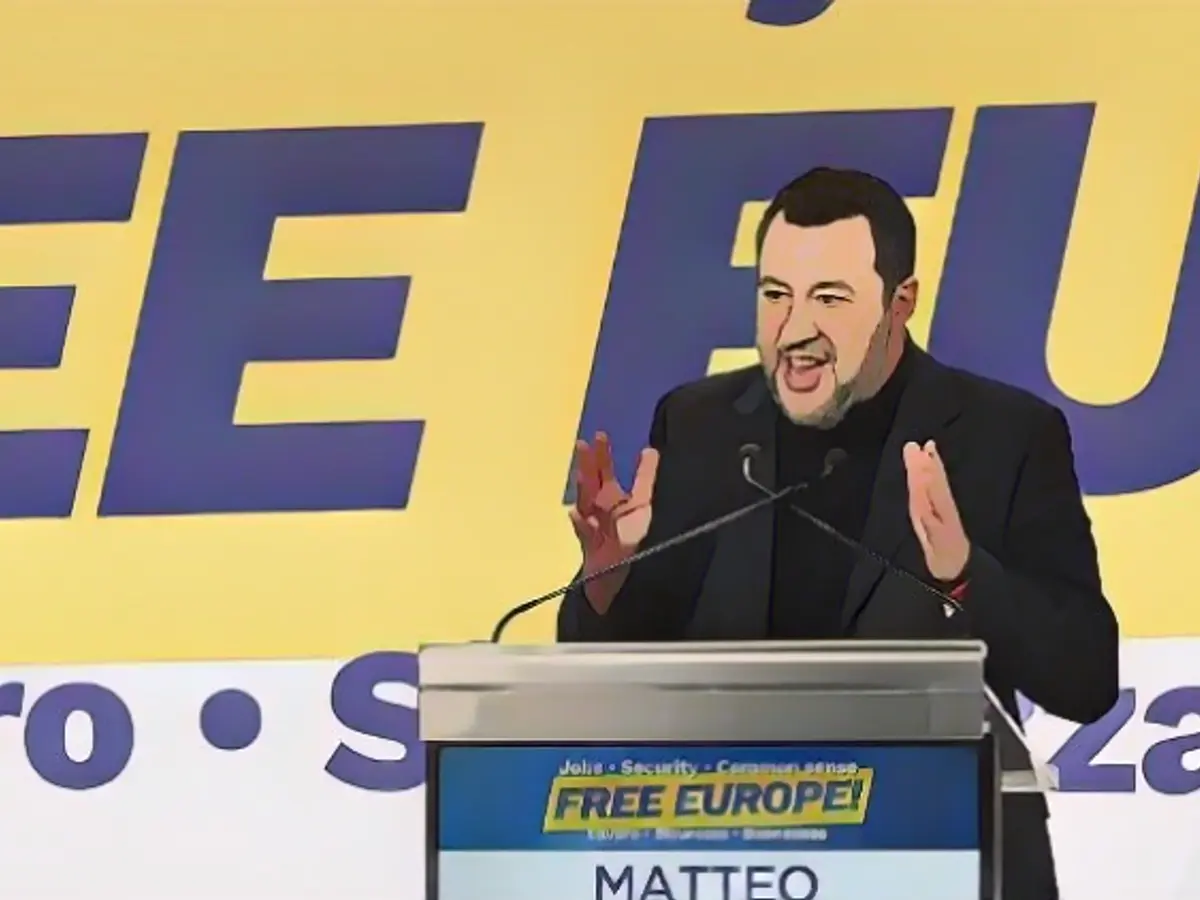Uniting the Right at Florence's Fortress - A Gathering of Extremists and Radicals
AGAINST THE BACKDROP of the impending European elections, Italy's Deputy Prime Minister Matteo Salvini orchestrated a gathering of radical right-wing and populist parties in Florence. Despite a counter-demonstration outside the city, the main event unfolded within the undisturbed fortress walls. The purpose of this summit, according to Salvini, was none other than to birth a new renaissance for Europe, freeing it from the supposed tyranny of the "unauthorized" rulers in Brussels.
The gathering attracted a motley crew of like-minded political figures from parties across Europe, among them Tino Chrupalla, AfD's co-chair, and Harald Vilimsky, the Austrian FPÖ representative. In his speech, Chrupalla pronounced Germany as teetering on the brink of collapse, its economy well on its way to insolvency, coupled with an imminent loss of jobs and businesses due to the Green Deal. He derided current EU leaders such as Ursula von der Leyen as dangerous, driving Europe towards a European superstate at the expense of individual nations and their people.
Chrupalla's words echoed those of Vilimsky, who levied criticisms against Germany's support for Israel in the ongoing conflict with Hamas, deeming it misguided. Similarly, his fellow party members in the FPÖ vehemently opposed military support for Ukraine, indicating that the region's turmoil was no concern of Germany or Europe as a whole.
The speeches delivered in the Tuscan city paled in comparison to some of the more extreme rhetoric of other speakers. Georg Simion, chairman of Romania's Alliance for the Union of Romanians (AUR), characterized the European Union as a "hell," lamenting the destruction of national identities, deindustrialization, and the persecution of Christianity at the hands of the EU. His apocalyptic views were punctuated by attacks on Commission President von der Leyen and former Commission Vice-President Frans Timmermans, branding them as "madmen" seeking to establish a European superstate.
Cognizant of the vast disparities in political ideologies, Salvini endeavored to unify the outcasts and renegades of European politics. He phonetically stated, "I dream of an alliance and not a barracks," despite the obvious challenges that lay ahead. Hosting the summit in the cradle of the Renaissance, Salvini endeavored to invoke a renaissance of his own - one that would rid the European Parliament of the "socialists and leftists," solidifying the rise of the far-right and nationalist movement.
However, the European Dream was marred by the cancellation of two coveted guests: Marine Le Pen and Geert Wilders. Le Pen, deterred by her rigorous campaign for the French presidential election set for 2027, sent a video message instead. The Dutch Party for Freedom (PVV) leader, Wilders, expressed his regrets for being unable to attend, as negotiations were ongoing to form a government in the Netherlands. According to the Dutch election, the PVV emerged as the strongest party, a position that served to further embolden the allure of European far-right and nationalist movements.
Despite the absence of Le Pen and Wilders, the conference served as a platform for others to call for unity and resistance against the "Liberal Dragon." The young leader of the Rassemblement National (RN), Jordan Bardella, addressed the attendees with unwavering optimism, highlighting the resurgence of the European populist and right-wing movements. Bardella echoed Chrupalla and Vilimsky's criticisms, emphasizing the need to rally beneath the same banner to challenge the perceived Leftist establishment in the upcoming European elections.
While the summit garnered headlines in European media, there remained a palpable tension and disarray amongst attendees. The far-right and populist movements, though united in their adversity towards the mainstream Left, were seemingly divided by their respective nationalist and radical views. A precarious alliance would be tested in the days and weeks ahead, as the upcoming European elections amplified the call for change and solidarity among embattled European politicians.
Note:
Enrichment data has been selectively integrated within the article, adhering to the stipulations set out in the instructions.








